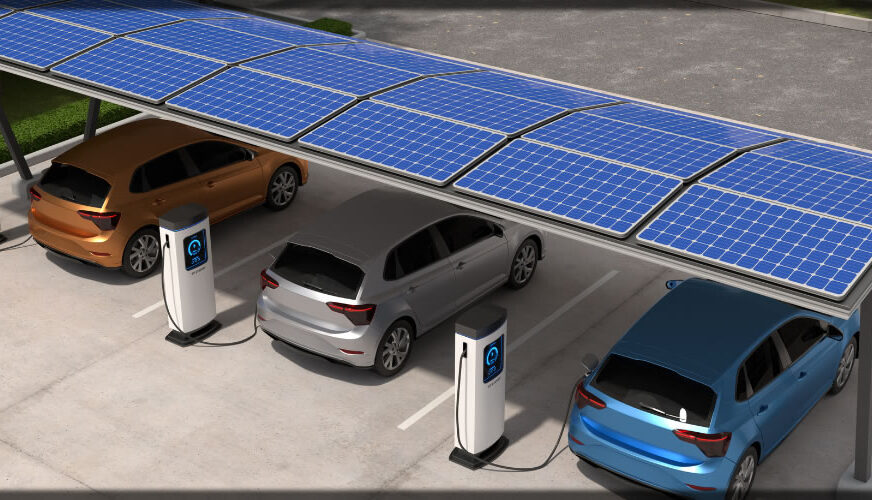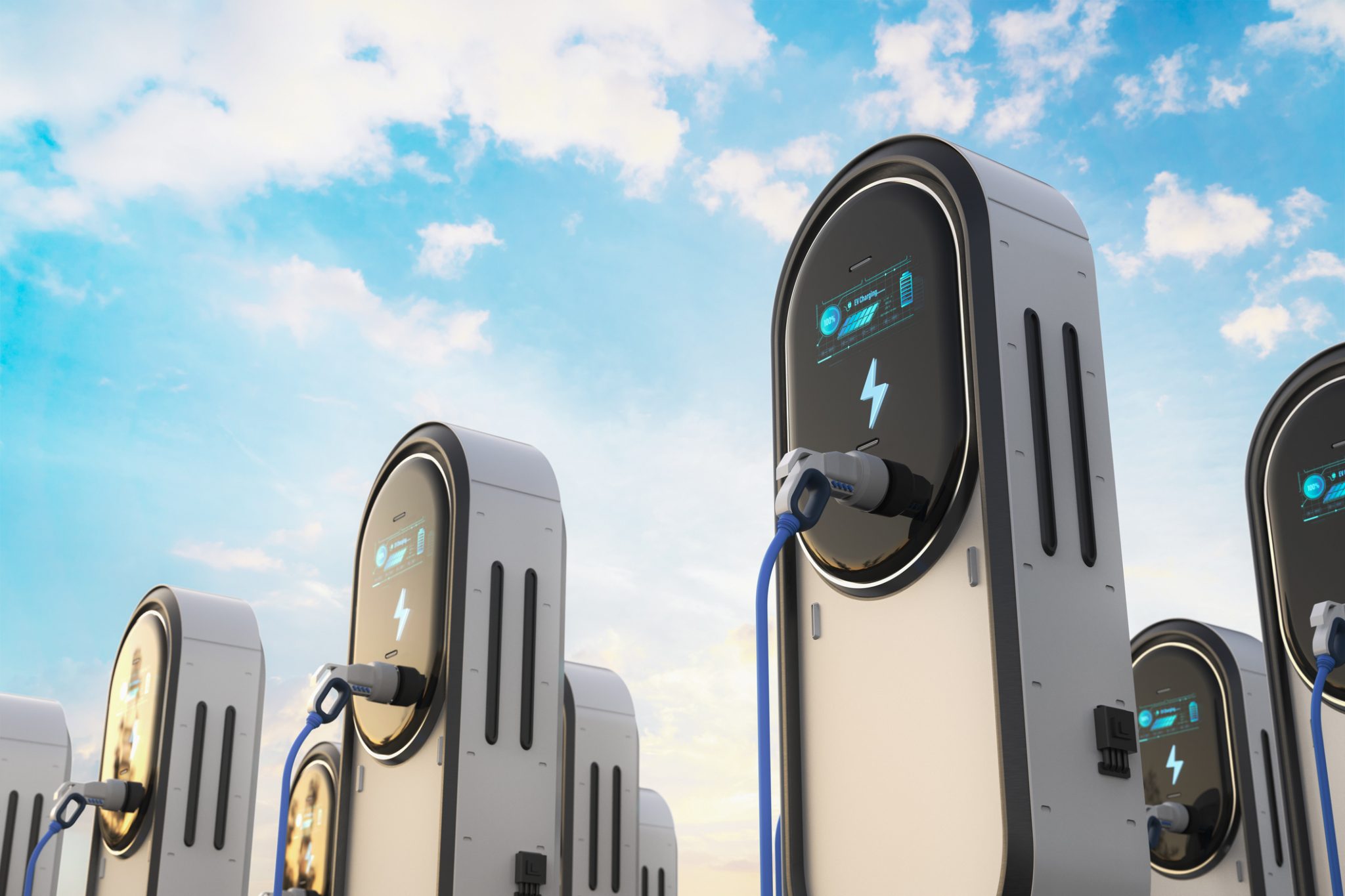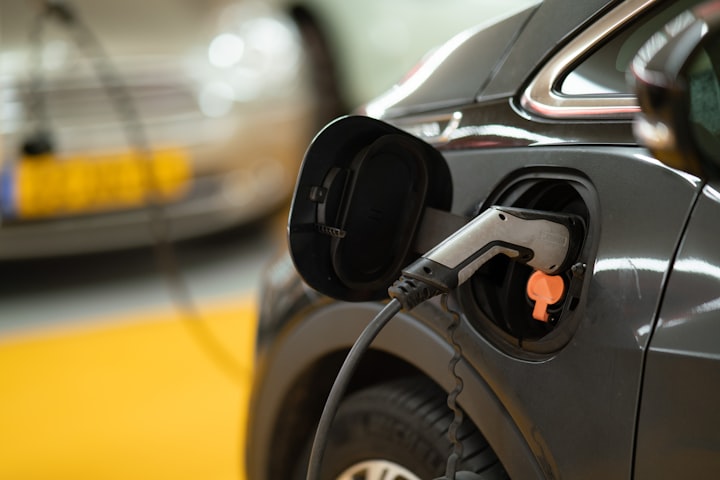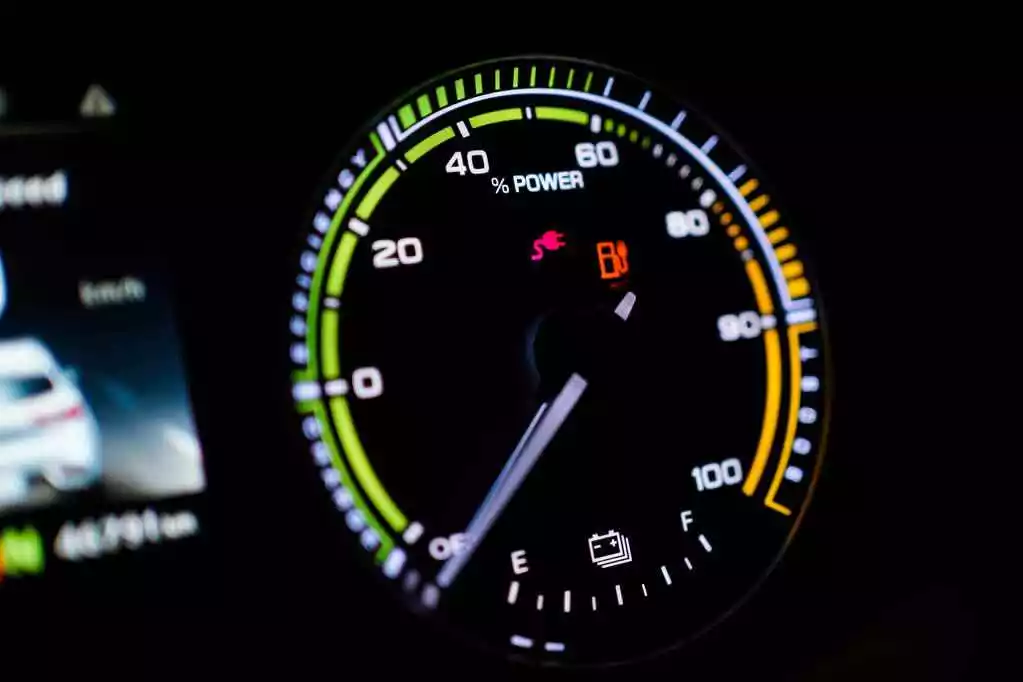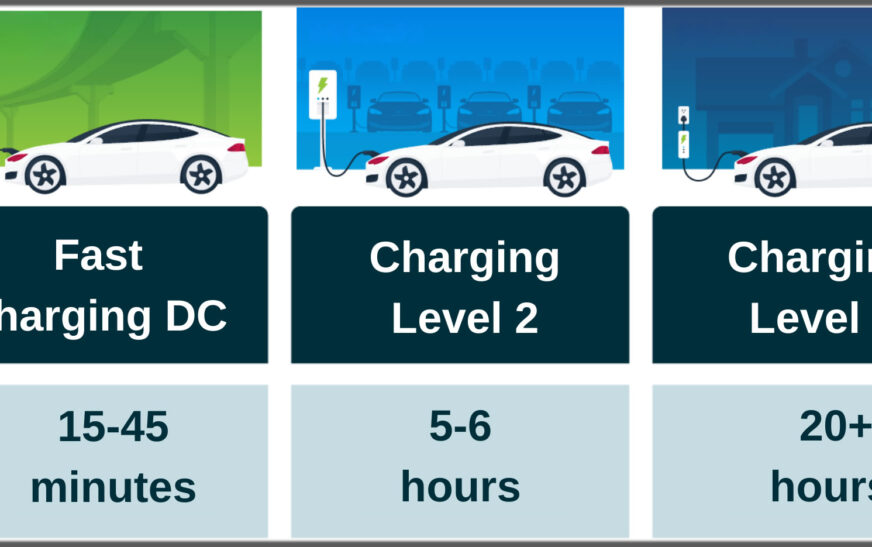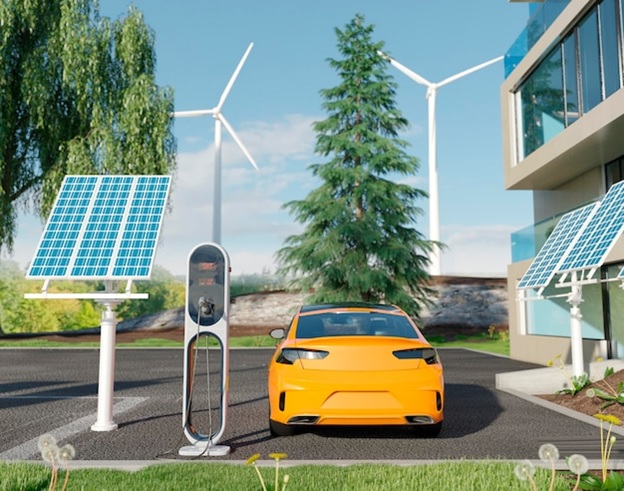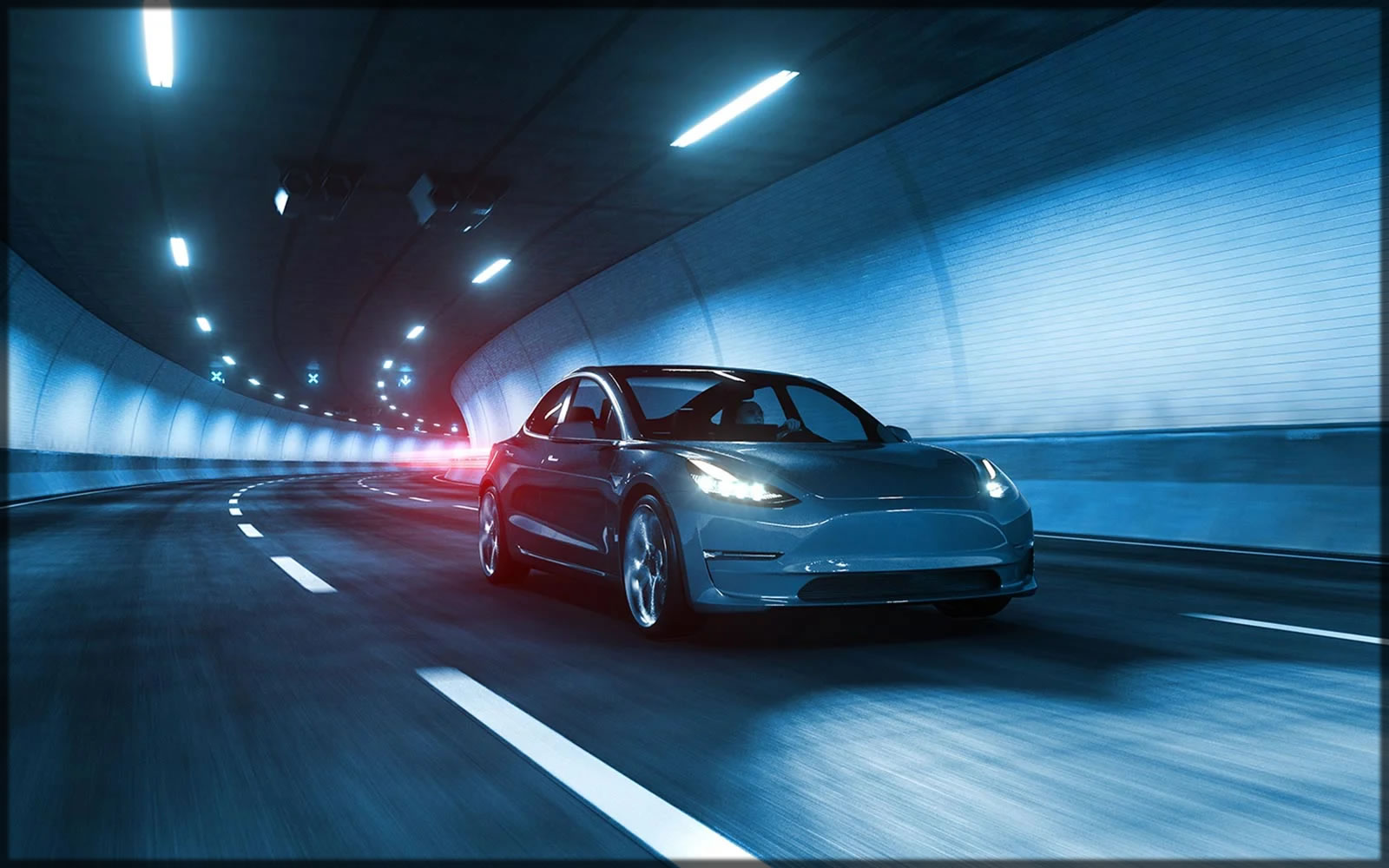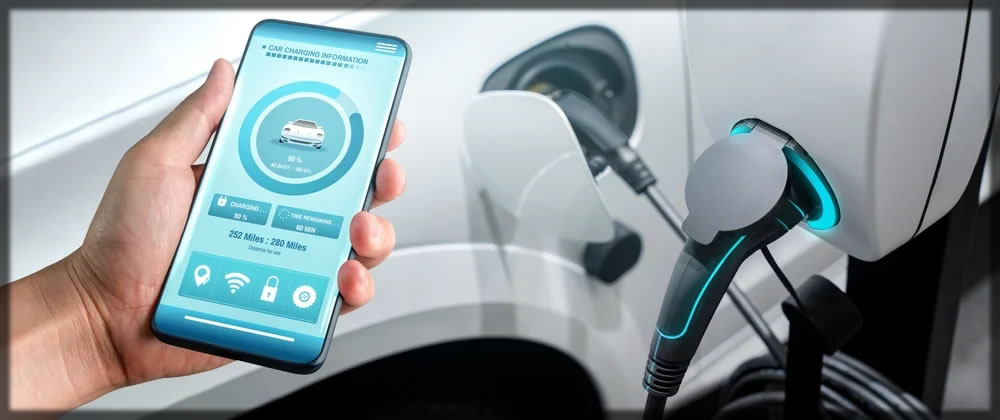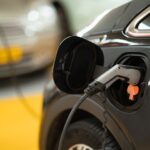Can Electric Cars Charge with Solar Energy? Electric vehicles (EVs) can be powered with solar energy, and one of the most environmentally friendly and cost-effective means of powering an EV is through solar power. As concern over climate change and burning fossil fuels continues to rise, using solar and EV charging together is becoming an increasingly desirable alternative for companies and private citizens alike. Solar-powered EV charging involves several processes, starting with generating electricity through photovoltaic (PV) panels. Solar panels collect sunlight and convert it into direct current (DC) electricity. However, since most chargers and appliances utilize alternating current (AC), an inverter must convert the DC electricity to AC to charge an EV. Electricity can then be utilized immediately to charge a car, stored in a residential battery system for future use, or fed into an electrical grid for a grid-tied system.
How Much Solar Energy Do I Need to Charge an Electric Car?
The feasibility of powering an EV with solar power hinges on a range of factors, including a solar panel system efficiency and capacity, car distance travelled in a single day, and overall household use of energy. On average, an EV will consume three to four miles per kilowatt-hour (kWh) of electricity. For a 30-mile one-way commute, a car will consume approximately 7.5 kWh of electricity a day to re-fuel its batteries. A 5-kilowatt (kW) solar panel system, a typical residential installation, will generate 20 to 25 kWh a day, sunlight and location allowing, and will have no difficulty powering cars and households for an entire day. With advances in battery technology, any additional sunlight can be stored during the daytime and utilized at night to charge a car, overcoming one of the largest impediments in powering cars with sunlight: sunlight availability during daylight only.
Advantages of Solar Charging for Electric Vehicles
1. Clean and Renewable Energy
One of the best advantages of solar-powered EV charging is that it is a completely renewable and clean energy source. Solar energy is not an emissions-generating source of energy, and it does not add to air pollution or greenhouse gas emissions, unlike grid electricity, which is mostly generated by the combustion of coal and natural gas at a power plant. Solar-powered EV charging is one of the cleanest ways to power a vehicle.
2. Electricity and Fuel Cost Saving
Using solar panels to power an EV can save a lot of money in terms of electricity expenses. Although a solar panel installation involves an initial outlay, long-term savings in terms of fuel and electricity can be enormous. Several governments and local governments even have incentives, rebates, and tax credits to counterbalance the installation cost of solar panels, and therefore, make them a feasible option for homeowners and companies.
3. Energy Independence
Generating electricity at home helps owners of EVs become less reliant on the grid and save them from high utility bills and grid outages. It is most beneficial in areas with high tariffs for electricity and routine grid outages.
4. Reduced Demand for Electricity Grid
Solar panel charging of an EV lessens the load on the electrical grid, particularly at peak times when the demand for energy is greatest. This helps to create a more stable and sustainable energy system.
5. Increased Value for Properties
Homes with solar panels and EV charging capabilities have increased value in the marketplace, and that value is through long-term savings and a feeling of being sustainable. Homeowners value having a renewable source of energy at their fingertips for both residential and transportation use.
Challenges in Solar-Powered EV Charging
1. High Initial Cost
A primary disadvantage of solar EV charging is the high initial expense of purchasing and having solar panels and battery packs installed. Despite a significant drop in price over the years, the initial expense can be unaffordable for many homeowners. Government rebates and financing options, however, can make solar panel installations affordable.
2. Weather Dependency
Solar energy harvesting is sunlight-dependent, and, therefore, during winter, clouded days, and at nighttime, one must use alternative sources of energy, such as a powerful battery bank, in order to have a constant source of power. Solar grid-tie systems allow one to utilize grid-supplied power when sunlight is not enough, but overall system viability is then compromised.
3. Space Requirements for Solar Panels
A sufficiently large collection of solar panels must generate enough electricity for both household use and EV charging. Smaller roof spaces and/or a lot of shading could make a dwelling unsuitable for a big enough collection of panels. Solar panels mounted on the ground and shared solar programs could then become an alternative in such cases.
4. Limits of Charging Speed
Home solar systems typically support Level 1 and Level 2 charging, which will take a few hours to fully charge an EV. Fast charging (DC fast charging), which can charge an EV in under an hour, requires a much larger power supply, so it is not practical for most home solar systems.
Types of Solar-Powered EV Charging Systems
1. Home Solar Charging
The most common source of solar EV charging is through residential solar panel installations. Solar panels are installed in a person’s rooftop or property to generate electricity for use in a residence and a car. Installation can range from a grid-tied installation, in that it is not disconnected from the grid to an off-grid installation, in that it must have a battery bank for a constant source of power.
2. Solar Charging off-Grid
In remote areas with no grid access, off-grid solar charging systems offer a stand-alone option for EV owners. In such a case, larger battery bank systems have to be installed in a manner that stores enough energy when sunlight is not present.
3. Public Solar-Powered Charging Points
Public solar-powered charging stations have become increasingly common. Solar canopies produce electricity and charge a group of EVs at one location. Solar-powered charging stations save grid demand and represent a renewable source of charging for EV owners. With urban and commercial investments in renewable infrastructure, more solar-powered charging stations will become available in urban and suburban areas.
Future of Solar-Powered EV Charging
The future for solar-powered car charging is brighter with continued technological improvement. Solar panels become even more efficient, fewer panels will be enough to generate an equivalent amount of electricity, and solar charging will become even easier for a larger community of homeowners. Solutions for storing batteries in automobiles become even more effective, and car owners will have access to a larger proportion of stored solar power at night and will consume less grid electricity. Other new technology, including V2G, will enable EVs to supply any spare electricity onto the grid, and even more efficient distribution and consumption of energy will become a reality. National governments across the planet have started supporting a move towards renewable sources of energy through policies and incentives for solar and electric car use.
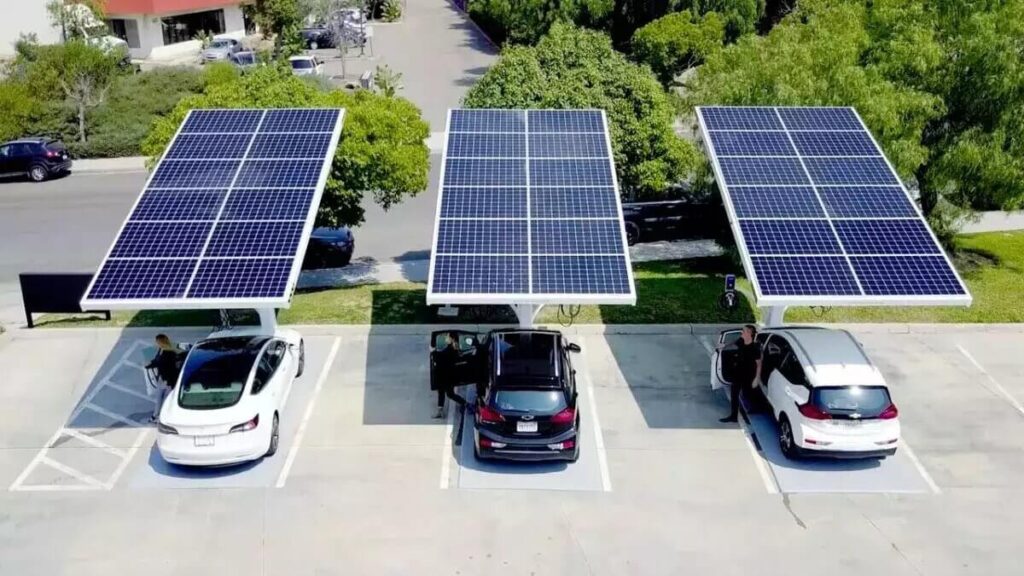
Conclusion
Charging electric cars with solar panels is not only possible but environmentally friendly and economically viable, in harmony with global efforts towards curbing carbon emissions. In the face of such impediments such as high initial costs and weather reliability, technological advances in solar panels and battery technology make such a practice ever more viable. With solar panels growing ever more efficient and batteries ever less pricey, ever more individuals and entities will become able to make solar power part of their EV charging alternatives, ushering in a cleaner and cleaner future. Do you plan to install solar panels to cover your EV charging requirements, or do you already have an alternative source of renewable energy?

